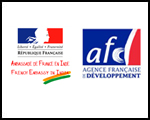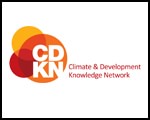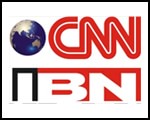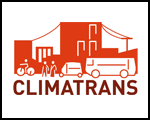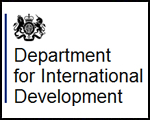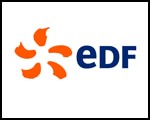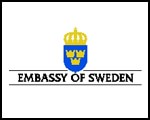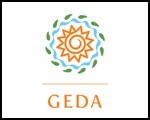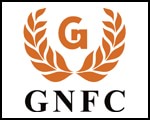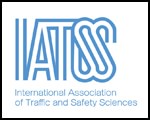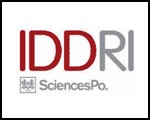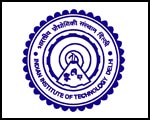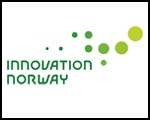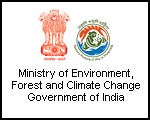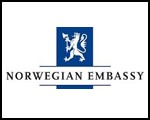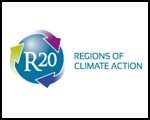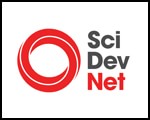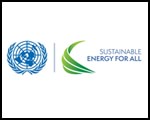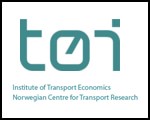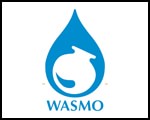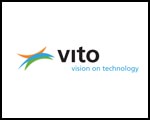

DSDS 2015 Partners
Asian Development Bank
ADB's vision is an Asia and Pacific region free of poverty.Its mission is to help its developing member countries reduce poverty and improve the quality of life of their people. Despite the region's many successes, it remains home to approximately two-thirds of the world's poor: 1.6 billion people who live on less than $2 a day, with 733 million struggling on less than $1.25 a day.
ADB is committed to reducing poverty through inclusive economic growth, environmentally sustainable growth, and regional integration.
Based in Manila, ADB is owned by 67 members, including 48 from the region. Its main instruments for helping its developing member countries are policy dialogue, loans, equity investments, guarantees, grants, and technical assistance.
Agence Française de Développement (AFD)
AFD, the Agence Française de Développement, is a public development-finance institution that has worked for seventy years to alleviate poverty and foster sustainable development in the developing world and in the French Overseas Provinces. AFD executes the French government?s development aid policies.
Working on four continents, AFD has seventy-one field offices and bureaus, including nine in France?s overseas provinces and one in Brussels. The Agency provides financing and support for projects that improve living conditions, promote economic growth, and protect the planet.
In 2013, AFD committed ?7.8 billion to projects in developing and emerging countries and in the French Overseas Provinces. These AFD-financed projects will provide schooling for children, improve maternal health, promote equality between men and women, support farmers and small businesses, and bolster access to drinking water, transportation and energy. These newly-funded projects will also help mitigate climate disruption by abating nearly 3.3 million metric tons of carbon dioxide-equivalent annually.
BMW
The BMW Group has its sights set firmly on the premium sector of the Indian automobile market with its three brands, BMW, MINI and Rolls-Royce.
BMW India
Headquartered in Gurgaon, BMW India is a 100% subsidiary of the BMW Group.
The wide range of BMW activities in India include a manufacturing plant in Chennai that locally produces the BMW 1 Series, 3 Series, 3 Series Gran Turismo, 5 Series, 7 Series, X1, X3 and X5. BMW India has also set high standards in service quality and customer care and currently has37 sales outlets. BMW India also offers 'BMW Premium Selection' with the finest range of pre-owned BMW vehicles that are carefully selected and comprehensively examined for quality.
The International Purchasing Office identifies and assesses potential suppliers for BMW, MINI, and BMW Motorcycles taking into account BMW Group's requirements for quality, technology and logistics.
BMW Financial Services India is a 100% subsidiary of the BMW Group and operates with three business lines: Retail Finance, Commercial Finance and Insurance Solutions (through cooperation partners).
The BMW Group
The BMW Group is one of the most successful manufacturers of automobiles and motorcycles in the world. The success of the BMW Group has always been built on long-term thinking and responsible action. Sustainability is firmly embedded in the BMW Group?s culture and corporate strategy. The company has therefore established ecological and social sustainability throughout the value chain, comprehensive product responsibility and a clear commitment to conserving resources as an integral part of its strategy.
The British High Commission
The British High Commission in India enhances the UK-India relationship, making it stronger, wider, and deeper, generating more jobs, more growth and more security for our two nations. The UK-India relationship is founded on a broad range of mutual interests. We work closely together on issues as diverse as education and research, energy security and climate change, security and defence, international relations.
The Energy, Climate and Growth Unit at the High Commission aims to enhance mutual prosperity through increasing energy security, tackling dangerous climate change, reducing poverty, and supporting jobs and growth.
We are sharing experience and expertise from the UK's domestic action to tackle climate change and to transition towards a low carbon economy. This has helped us cement relationships at national and state level, and create a space for constructive dialogue and cooperation.
We have been working closely with the Indian Government. We have supported initiatives on industrial energy efficiency and renewable energy, and are helping in implementation of state action plans on climate change. We have also collaborated on meeting one of India?s primary goals of secure, affordable and reliable access to energy.
Climate Development Knowledge Network
Our mission
CDKN works to change the quality of life for people most challenged by the effects of climate change. We aim to bridge climate change and development policy: enabling developing countries to achieve a low- carbon and climate-resilient future along with poverty reduction and human development.
CDKN supports decision-makers in government, the private and non- governmental sectors at subnational, national, regional and global levels, in designing and delivering climate compatible development. We do this by combining research, advisory services and knowledge-sharing in support of locally-owned and managed policy processes.
Who we are
CDKN is a North South alliance that brings together a wide range of expertise and experience: PricewaterhouseCoopers (PwC), the Overseas Development Institute (ODI), LEAD International, LEAD Pakistan, Fundación Futuro Latinoamericano and SouthSouthNorth. Our team includes climate scientists, researchers, economists and project managers, along with specialists in communication, knowledge management and partnership building.
Our approach
CDKN offers a distinctive, demand-led approach: decision-makers determine the kind of support we provide and we help align it with the broader context of development policies and planning. Within the scope of climate compatible development, we work across four strategic themes. We describe these, with examples of our work, in the following pages:
» Climate compatible development policies and practice
» Improving developing countries' access to climate finance
» Strengthening resilience through climate-related disaster risk management
» Supporting climate negotiators from the least developed and most climate vulnerable countries
CDKN is committed to supporting social inclusion and gender equality in its programme. We recognise that the causes, effects and solutions for climate change are not gender-neutral, and that social inequalities impede effective and sustainable climate compatible development. We recognise that there should be equal access between men and women to the opportunities presented by low-carbon, climate-resilient development
CNN-IBN
CNN-IBN is India's No.1 English news channel and is one of the most
respected and trusted sources for news and information in the country
today. A team of renowned journalists and the support of
cutting edge broadcast technology makes CNN-IBN one of the most robust
teams of news professionals.
The channel has been a 'thought leader' and pioneered several path-breaking initiatives that include CNN-IBN Indian of the Year, Real Heroes, the Citizen Journalist Awards. The channel has also received more than 200 awards; making it India's most awarded English News Channel
Read MoreCLIMATRANS
The Research Council of Norway has launched a new research project "CLIMATRANS" Coping with Climate: Assessing Transport Sector Strategies for Climate Change Adaptation and Mitigation for Indian Cities? that will be undertaken during the next three years.
The project will assess climate change impacts in urban areas in India and aims to develop mitigation and adaptation strategies for the transport sector. In addition, the project also aims to provide knowledge that would support improving the institutional capacities involved in climate decision-making strategies. CLIMATRANS is an interdisciplinary project within the realms of social and natural sciences and in close consultation with city and national stakeholders. Institute of Transport Economics and Meteorological Institute in Norway and four Indian research institutions ? The Energy and Resources Institute (TERI, New Delhi), School of Planning and Architecture (SPA, New Delhi), Indian Institute of Science (IISc, Bangalore) and Indian Institute of Technology Bombay (IIT Bombay) ? will collaborate in this research project. India?s three largest cities, Delhi, Mumbai and Bangalore have been selected as the case cities.
Read MoreDepartment for International Development
The Department for International Development (DFID) leads the UK?s work to end extreme poverty. For several decades, DFID has been working with the Government of India to help India achieve its own poverty reduction priorities and the Millennium Development Goals.
In November 2012, the UK and India agreed to move to a new development relationship, ending the UK?s financial grant aid to India. The UK will responsibly complete by 2015 all commitments to on-going projects. New programme will focus on sharing skills and expertise in priority areas such as growth, trade and investment, skills and health, or on making investments in private sector projects which create opportunities for the poor while generating a return. We will also strengthen our partnership with India on global development issues like food security and climate change.
The Energy, Climate and Growth Unit (ECGU), in British High Commission, New Delhi, is a cross government unit with staff from the UK?s Foreign and Commonwealth Office, Department for Energy and Climate Change and DFID. ECGU contributes to mutual prosperity in India and the UK by tackling Climate Change, reducing poverty, enhancing energy security and supporting jobs and growth.
eDF
The EDF Group supplies energy and services to more than 39 million customers worldwide (approximately 28.5 million in France). At Group level, 85.1% of the electricity produced is CO2-free, with a carbon intensity of 116.3 g/kWh. The EDF group is also the European leader in renewable energy as measured by installed capacity.
In 2008, EDF Group adopted its climate change and CO2 emissions reduction strategy as part of its overall sustainable development policy. EDF has mobilized its different entities to take into account carbon emissions considerations in operation and investment decisions, allowing each entity to design its own action plans over different time horizons.
In 2012, the EDF Executive Committee decided on a best-in-class Group target among major utilities for low carbon energy, with an upper limit of CO2 emissions intensity of 150 g/kWh of electricity produced. In France EDF will halve its CO2 emissions from 1990 levels by 2016; this amounts to a total reduction of 12 million tonnes of CO2 between 1990 and 2016, and over the same period, electricity production will have risen by 26%.
For long term investment decisions CO2 prices form a vital part of the EDF's analysis and decision making process. For investments taking place in carbon regulated areas (e.g. in the EU with the EU ETS regulation), EDF considers different scenarios including CO2 prices to stress the investment decisions. For investments in non regulated areas, EDF looks carefully at the technologies used in each country and aims to promote the best available ones in line with future decarbonisation pathways, given that many areas where EDF invests are in transition to a low carbon world.
Embassy of Sweden
"The Embassy of Sweden in New Delhi is responsible for strengthening contacts between Sweden and India within a range of areas in both public and private sector. Among other things, the Embassy promotes trade and economic cooperation with particular focus on business promotion. It is also responsible for spreading information about Sweden in India. It provides support to Swedish citizens in consular matters and visa issues and permits for Indian and third country national citizens. The Ambassador is also accredited to Sri Lanka, Nepal, Bhutan and the Maldives."
GEDA
Gujarat Energy Development Agency (GEDA) is one of the premier organizations in the field of renewable energy development and energy conservation in India. It is the State Nodal Agency (SNA) for the Ministry of New and Renewable Energy Sources (MNRE) and the State Designated Agency (SDA) for Bureau of Energy Efficiency (BEE) for the State of Gujarat.
Presently it is working under the Climate Change Department of Government of Gujarat. GEDA has played an important role in making the renewable energy and energy efficient technologies economically and commercially viable and making Gujarat a leader state in this sector. GEDA is working in non-conventional energy sector since 1979, it was catalytic in the formation of the Commission of Additional Sources of Energy (CASE) in 1981 which later became Ministry of New and Renewable Energy. GEDA has been conferred more than 30 National awards in last few years. It has pioneered policy for harnessing Solar Energy and made Gujarat No. 1 State in Solar Power. The Solar Park of Gujarat has capacity to generate 590 MW of Solar Power and 100 MW of Wind Power, making the it the biggest solar-wind hybrid Park in the world.
Read MoreGNFC
Gujarat Narmada Valley Fertilizers and Chemicals Limited (GNFC), set up in 1976 at Bharuch, Gujarat, is a joint sector enterprise promoted by Government of Gujarat and Gujarat State Fertilizers & Chemicals Limited (GSFC). GNFC today has extended its profile much beyond fertilizers through a process of horizontal integration.
Chemicals/Petrochemicals, Energy Sector, Electronics/Telecommunications and Information Technology form ambitious and challenging additions to its corporate portfolio. Since inception, GNFC has worked towards an extensive growth as a corporation. GNFC is India's largest producer of Formic Acid, Acetic acid and Methanol and it has set up the world's largest single stream, fuel oil based Ammonia - Urea plant
The corporate strategy of GNFC is inspired by the opportunity to contribute to a more secured and sustainable future. The focus has been on Environment Sustainability and development of people living in remote and rural areas.
Global Sustainable Electricity Partnership
The Global Sustainable Electricity Partnership is a not-for-profit organization whose members are the world's leading electricity companies. The organization promotes sustainable energy development through electricity sector projects and human capacity building activities in developing and emerging nations worldwide.
The mission of the Global Sustainable Electricity Partnership is to play an active role in addressing global electricity issues and to promote sustainable development worldwide. The main objectives of our organization include:-
» Develop joint policy frameworks and implement related initiatives in both domestic and international markets.
» Engage in the global debates on electricity-related issues, taking joint positions.
» Provide information and expertise on the efficient generation and use of electricity to assist developing countries in strengthening their human capabilities.
The list of members of GSEP are as follows
» American Electric Power (USA)
» Comisi?n Federal de Electricidad (Mexico)
» ?lectricit? de France (France)
» Eletrobras (Brazil)
» ENEL S.p.a (Italy)
» Hydro-Qu?bec (Canada)
» Iberdrola (Spain)
» JSC "RusHydro" (Russia)
» Kansai Electric Power Company, Inc. (Japan
» RWE AG (Germany)
» State Grid Corporation of China (China)
» Tokyo Electric Power Company Inc. (Japan)
HT Media Limited
HT Media Limited is one of India's foremost media companies, and home to three leading newspapers in the country in the English, Hindi and Business news segments - 'Hindustan Times' (English daily), 'Hindustan' (Hindi daily, through a subsidiary) and 'Mint' (business daily). 'Hindustan Times' was started in 1924 and has more than 90 years of history as one of India's leading newspapers.
The Company also has four FM radio stations - "Fever 104 FM" in Delhi, Mumbai, Bengaluru and Kolkata. The Company has also made a foray into the Internet space through its subsidiary Firefly e-Ventures Limited and has launched successful portals www.Shine.com, www.HTCampus.com, www.Desimartini.com. These are in addition to the existing news websites livemint.com, livehindustan.com and hindustantimes.com.
Read MoreIATSS
The International Association of Traffic and Safety Sciences (IATSS) was established on September 17, 1974 through an endowment created by Honda Motor Company and Honda's founders Soichiro Honda and Takeo Fujisawa. (It was authorized as a public interest incorporated foundation in April 2011.) IATSS aims to provide a forum for scholars and other experts in various academic fields to freely discuss and conduct research on the present and future state of transportation in mobile societies.
The guiding principle is to promote the development of an ideal transportation system by undertaking traffic and safety-related research activities, hosting research conferences, conducting publishing and promotional activities (IATSS Research, an international academic journal for transportation and transport safety-related issues, is published electronically with open access by Elsevier Ltd.), and conferring awards and grants for research, education, and other transportation-related initiatives.
Read MoreIDDRI
The Institute for Sustainable Development and International Relations (IDDRI) is a non-profit policy research institute based in Paris. Its objective is to determine and share the keys for analyzing and understanding strategic issues linked to sustainable development from a global perspective.
IDDRI helps stakeholders in deliberating on global governance of the major issues of common interest: action to attenuate climate change, to protect biodiversity, to enhance food security and to manage urbanisation. IDDRI also takes part in efforts to reframe development pathways.
A special effort has been made to develop a partnership network with emerging countries to better understand and share various perspectives on sustainable development issues and governance. For more effective action, IDDRI operates with a network of partners from the private sector, academia, civil society and the public sector, not only in France and Europe but also internationally.
As an independent institute, IDDRI mobilises resources and expertise to disseminate the most relevant scientific ideas and research ahead of negotiations and decision-making processes.
It applies a cross-cutting approach to its work, which focuses on seven themes: Global Governance, Climate and Energy, Biodiversity, Oceans and Coastal Zones, Urban Fabric, Agriculture, and New Prosperity
TRIPP, IITD
The Transportation Research and Injury Prevention Programme (TRIPP) at the Indian Institute of Technology (Delhi) is an interdisciplinary programme focussing on the reduction of adverse health effects of road transport. TRIPP attempts to integrate all issues concerned with transportation in order to promote safety, cleaner air, and energy conservation.
Faculty members are involved in planning safer urban and inter-city transportation systems, and developing designs for vehicles, safety equipment and infrastructure for the future. Activities include applied research projects, special courses and workshops, and supervision of student projects at post graduate and undergraduate levels. Projects are done in collaboration with associated departments and centres at IIT Delhi, government departments, industry and international agencies.
Read MoreInnovation Norway
Innovation Norway is the Norwegian Government's instrument for innovation and development of Norwegian enterprises and industry. The mandate is to support companies in developing their competitive advantage, enhance innovation and be a partner in internationalization. Through Innovation Norway the Norwegian enterprises have access to a broad business support system as well as different financial means.
Innovation Norway provides competence, advisory services, promotional services and network services. The marketing of Norway as a tourist destination is also considered one of the organizations important tasks. By combining local industry knowledge and international networks with the business ideas and the motivation of entrepreneurs, the foundation for new successful businesses is created.
Read MoreMint
Mint, a business paper from Hindustan Times was launched in 2007 with the premise of bringing "Clarity in Business News", a need strongly articulated by business news readers in the country.
Mint aims to demystify complex business issues and provide unmatched clarity and depth in its coverage. This desire to provide a fresh perspective along with trustworthy, accurate and unbiased news and analysis to an increasingly global and aware audience is the driving force behind Mint. Whether it is the refreshing new Berliner format, the design by an internationally acclaimed designer, the unique weekend magazine Lounge has features that no other business paper in the country has.
The numbers bear testimony to the high acceptability and strong bond that Mint has with its readers. According to the Indian Readership Survey (2013),MRUC, 2,72,000 readers make Mint a strong No. 2 player. Mint has a strong readership share in the key markets of Delhi, Mumbai, Bangalore, Kolkata, Chennai and Hyderabad. With other editions in Ahmedabad, Chandigarh and Pune, Mint reaches the who's who of corporate India nationally.
The effort at Mint is to keep enhancing the product offering so that it stays relevant to the changing consumer needs and stays true to the entire clarity proposition that it offers.
Global praise and recognition has been forthcoming for the efforts at Mint. Over the last few years, Mint's journalism and product propositions were recognized at national and international forums. Accolades like Media Tenor's Best Business Media Award 2012 and two SOPA (Society of Publishers in Asia) for its journalistic initiatives on the changing role of people and on the status of women in India, were key achievements as the awards hold great prestige globally and it honours diverse, informative and balanced business coverage.
Ministry of Environment, Forest and Climate Change
Government of India
The Ministry of Environment, Forests and Climate Change (MoEFCC) is the nodal agency in the Central Government for overseeing the implementation of India's environment and forest policies and programmes relating to conservation of the country's natural resources including lakes and rivers, its biodiversity, forests and wildlife, ensuring the welfare of animals and prevention and abatement of pollution. While implementing these policies and programmes, the Ministry is guided by the principle of sustainable development. The broad objectives of the Ministry are:
Conservation and survey of flora, fauna, forests and wildlife,
• Prevention and control of pollution,
• Afforestation and regeneration of degraded areas,
• Protection of the environment, and
• Ensuring the welfare of animals.
These objectives are well supported by a set of legislative and regulatory measures aimed at the preservation, conservation and protection of the environment. Besides the legislative measures, a National Conservation Strategy and Policy Statement on Environment and Development, 1992, National Forest Policy, 1988, a Policy Statement on Abatement of Pollution, 1992 and a National Environment Policy, 2006 also guide the Ministry's work.
The Ministry is also the nodal agency for the United Nations Environment Programme (UNEP), South Asia Co-operative Environment Programme (SACEP), International Centre for Integrated Mountain Development (ICIMOD) and the United Nations Conference on Sustainable Development (UNCSD) or Rio+20. The Ministry also coordinates with multilateral bodies such as Global Environment Facility (GEF) and regional bodies such as Economic and Social Council for Asia and Pacific (ESCAP) and South Asian Association for Regional Cooperation (SAARC) on matters pertaining to environment.The Ministry successfully hosted the eleventh Conference of Parties to UN Convention on Biological Diversity (UNCBD) in October 2012 at Hyderabad, India. The Ministry is following the inter-governmental process of developing Sustainable Development Goals (SDGs), which is an outcome of Rio+20 summit held in June 2012 at Rio de Janeiro, undertaken by the Open Working Group (OWG) set up by UN General Assembly ."
Royal Norwegian Embassy
The Royal Norwegian Embassy feels privileged to be the Star Partner for the DSDS 2015. This is an important international platform to address global environmental and development challenges, of great value to governments, civil society, business and academia.
Norway and India enjoy excellent bilateral relations based on a broad range of political and economic issues. Our partnership is founded on mutual interests and respect. We collaborate in diverse areas such as environment, energy, climate change, sustainable development, health, trade and investments, good governance, gender, culture, higher education, science and technology. Norway is committed to further strengthen and develop mutually beneficial cooperation with India.
Read MoreRegions Of Climate Action
R20 is a coalition of partners led by regional governments that work to promote and implement projects that are designed to produce local economic and environmental benefits in the form of reduced energy consumption and
greenhouse gas emissions; strong local economies; improved public health;
and new green jobs. These local actions can help the world achieve our
shared global environmental and economic goals.
SciDev.Net
SciDev.Net's website is the world?s leading source of reliable and authoritative news, views and analysis on information about science and technology for global development.
We engage primarily with development professionals, policymakers, researchers, the media and the informed public.
Our main office is based in London but we have seven editions: Sub-Saharan Africa English, Sub-Saharan Africa French, South Asia, Latin America & Caribbean, South-East Asia & Pacific, Middle-East & North Africa and Global. Between us we manage a worldwide network of registered users, advisors, consultants and freelance journalists who drive our activities and vision.
Our mission is to help individuals and organisations apply evidence and insights from science and technology to decision-making in order to have a positive impact on equitable and sustainable development and poverty reduction.
The purpose of our strategy for 2013?2017 is to encourage science and technological awareness in policies, programmes and projects that contribute to the wellbeing of the poor in the developing world. We hope to achieve this by facilitating access to information that is useful and trustworthy, as well as supporting the capacity to deliver and sustain this mainstreaming strategy.
Sustainable Energy for All
The United Nations Secretary-General's Sustainable Energy for All (SE4ALL) Initiative was launched at the General Assembly in September 2011 to identify and mobilize action in support of energy access, energy efficiency and increasing the share of renewable energy.
Scope
The UN SE4ALL Initiative is a multi-stakeholder partnership working with business, civil society, banks, governments and international institutions to promote public private partnerships to induce significant changes in the way energy services are produced and accessed to reach three global objectives.
Tasks
The SE4ALL initiative aims at achieving three main targets by 2030:
(i) ensure universal access to modern energy services,
(ii) doubling the share of renewable energy in the global energy mix and
(iii) doubling the rate of improvement in energy efficiency worldwide.
Accomplishments
• The UN dedicated the Decade 2014-2024 to "Sustainable Energy for All" and the first two years of the Decade are focusing on a campaign on "Energy-Women-Children-Health". Energy was included by UN General Assembly's Working Group amongst the proposed Sustainable Development Goals to ensure access to affordable, reliable, sustainable, and modern energy for all.
• To date, businesses and investors have committed over USD $50 billion to achieve the Initiative's three objectives. An assessment by Bank of America Merrill Lynch, the Brazilian National Development Bank and the World Bank Group confirms the potential and presents a concrete plan to raise $120 billion in additional investments that will contribute to halving energy poverty and promoting sustainable energy solutions with six concrete instruments that have been developed.
• The Sustainable Energy for All Global Energy Efficiency Platform was launched at the Climate Summit in New York.
• More than 100 countries (including 85 developing countries) have joined SE4ALL as partner countries. In the first phase 30 countries have been selected as focus countries for the roll out of Action Agendas and Investment Prospectuses, fighting energy poverty including off-grid, beyond grid and improved cooking solutions.
Transport Ø konomisk institutt,
The Institute of Transport Economics (Transport Ø konomisk institutt, TØI) is a national institution for transport research and development. The Institute was set up in 1958, firstly as a Government secretariat and later (from 1964) as a separate research institution under the auspices of the Royal Norwegian Council for Scientific and Industrial Research (NTNF, now merged into the Research Council of Norway).
In 1986 the Institute became a private, independent research foundation. The Institute receives its annual base funding from the Research Council of Norway.
The main objectives of the Institute are to carry out applied research on issues connected with transport and to promote the application of research results by advising the authorities, the transport industry and the public at large. Its sphere of activity includes most of the current major issues in road, rail, sea and air transport. The Institute is also involved in international cooperation within the transport sector.
Special emphasis is placed on the practical application of research results, and most of the studies and projects carried out here are commissioned. In Norway most of the clients are central government bodies and local authorities, with some commissions from the private sector. Major clients are the Ministry of Transport and Communications, the Public Roads Administration and the Research Council of Norway. The Institute is also engaged in a number of research projects for the European Commission, for public authorities in different countries and for international organisations.
United Nations Development Programme
The United Nations Development Programme (UNDP) helps empower lives and build resilient nations. UNDP partners globally with all levels of society in more than 170 countries and territories where we operate. We offer global perspective and local insight to help empower lives and build resilient nations that can withstand crisis, and that drive and sustain growth that improves the quality of life for everyone.
WASMO
WASMO is established by Government of Gujarat in 2002 as a Special Purpose Vehicle. WASMO's Vision is to enable communities to have adequate, safe and sustainable drinking water supply and improved habitat by ensuring empowerment and active community management of natural resources, leading to an improvement in their living standards.
The Key Accomplishments of WASMO are:
» Pani Samitis have been formed in 18,185 villages covering the 100% villages of Gujarat.
» 11,561 in-village water supply schemes have been completed by village level Pani Samitis.
» 79% rural households have tap connectivity, covering 53 lakh households in Gujarat.
» More than 8,870 villages have implemented the water tariff systems.
» Total 18,310 water quality teams have been formed at village level.
» The Pani Samitis have built up more than 40,000 cattle troughs and roof rain water harvesting structures in more than 1,632 schools and 36,918 households level.
Vito
VITO is a leading European independent research and technology organisation in the areas of cleantech and sustainable development, elaborating solutions for the large societal challenges of today. VITO provides innovative and high-quality solutions, whereby large and small companies can gain a competitive advantage, and advises industry and governments on determining their policy for the future.
VITO has 750 highly-qualified employees who work on international projects all around the world. VITO's headquarters are located in Mol, Belgium, and the company has a subsidiary in China. The total turnover of VITO amounted to about 140 million euros in 2014.
VITO's research agenda tackles the major societal challenges we are facing today. VITO focuses on five different research programmes: sustainable chemistry, energy, health, materials management and land use.

American Center, U.S. Embassy, New Delhi
The American Center of the U.S. Embassy, New Delhi manages a broad range of activities promoting strong relations between the people of India and the United States. These activities include professional exchanges, an extensive policy-based speaker program, education outreach, and events to convene strategic thinkers throughout North India. The American Center also partners with a number of civic organizations who are engaged in creating spaces for dialogue, cultural enrichment, and awareness around issues important to the bilateral relationship.
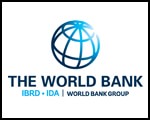
The World Bank Group
The World Bank Group is an international development institution that helps countries across the world fight poverty and boost shared prosperity. It does so by providing governments with an integrated package of financing, advisory services, and knowledge, tailored to the development needs of each country.
The Group's 187 member countries are its shareholders. India's Finance Minister is a member of the Board of Governors which lays down the institution's basic policy guidelines and has the ultimate responsibility for decision making within the Bank. India also has a permanent seat on the Bank's Executive Board and appoints its own Executive Director based in Washington DC. Recently, India became the Group's 7th largest shareholder.
The International Bank for Reconstruction and Development (IBRD), International Development Association (IDA) and the International Finance Corporation (IFC) are among the Group's principal branches. While IBRD provides financing for middle-income countries to build core infrastructure with loans that carry minimum market interest rates, IDA provides interest-free loans to low-income countries for a broad range of sectors including health and education, rural roads, and water and electricity supply, especially for the poor. As the largest global development institution focused on the private sector, IFC works closely with businesses in developing countries to help them succeed in ways that promote prosperity for all. They provide investment, advice, and asset management.
India was one of the institution's founding members and took its first loan in 1949 for the Indian Railways. Over the years, the Bank has financed a number of large projects - to build infrastructure, generate power, produce iron and steel, upgrade the ports, and support the Green and White Revolutions. Projects have also supported inclusive growth by helping expand access to education, tackle disease, raise agricultural productivity, improve rural connectivity, and bring much-needed water supply to village households.
Through the decades, Bank support has been aligned with the country's own development goals as articulated in the Five Year Plans. The Group's workplan for the country is spelt out in its Country Partnership Strategies that are developed in consultation with the government, together with inputs from civil society organizations and the private sector. A key feature of the Group's India strategy for 2013-2017 is the significant shift towards support for low-income and special category states, where many of the poor and disadvantaged live.
World Bank Group assistance to India between July 2013 and June 2014 amounted to $6.4 billion. This comprised $2 billion from IBRD, $3.1 billion from IDA, and $100 million from the Clean Technology Fund that the World Bank Group administers. During that period, the World Bank Group's private sector arm, International Financial Corporation (IFC) committed $1.2 billion in India. As of June 2014, total IBRD and IDA net commitments in India stood at $22.7 billion (IBRD $11.2 billion, IDA $11.5 billion) across 82 projects. As of end June 2014, IFC's India portfolio contained 239 projects, amounting to committed and disbursed exposure of $5.7billion.
Today, as India strives to maintain high growth and meet the aspirations of a billion people, we stand committed to working with the country to achieve its development goals and improve the quality of life for its people.
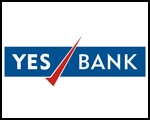
YES BANK LIMITED
YES BANK, India's fourth largest private sector bank, is the outcome of the professional and entrepreneurial commitment, vision and strategy of its Founder Rana Kapoor and his top management team, to establish a high quality, customer centric, service driven, private Indian bank catering to the Future Businesses of India.
YES BANK has adopted international best practices, the highest standards of service quality and operational excellence and offers comprehensive banking and financial solutions to all its valued customers. YES BANK has a knowledge-driven approach to banking and a superior customer experience for its retail, corporate, and emerging corporate banking clients. YES BANK is steadily evolving its organizational character as the ?Professionals? Bank of India with the uncompromising Vision of ?Building the Best Quality Bank of the World in India by 2020!?
Since inception, YES BANK has received significant national and global recognitions and accolades including the ?Global Performance Excellence Award 2014? in the Services Category by Asia Pacific Quality Organization in Chicago. YES BANK has been declared as ?World Class Organization? (top category award) amongst 11 other organizations around the world and is the only Indian bank to win this prestigious global award.
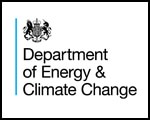
Department of Energy & Climate Change
The UK Government's Department of Energy & Climate Change (DECC) works to make sure the UK has secure, clean, affordable energy supplies and promote international action to mitigate climate change.

